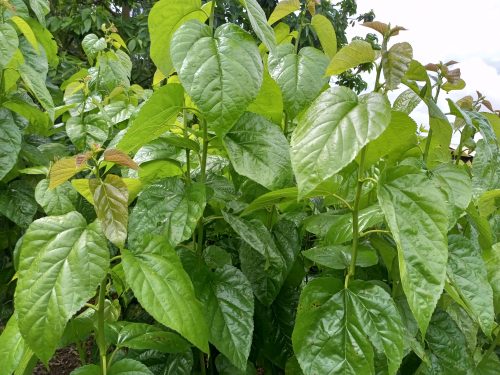National Certificate in Agriculture (NCA)
The National Certificate in Agricultural Production (NCAP) course is designed to produce practical agriculturalists who are innovative and self-reliant. It emphasizes skill acquisition through practical learning, projects, innovation, and industrial training. This program prepares students to meet the ever-changing demands of the agricultural industry and the world of work.

- DURATION...........................2 Years
- Accreditation......................DIT & UBTEB
- Tuition
- International Students: UGX 800,000 (USD 223) per semester
- Ugandans / East Africans / Refugees: UGX 420,000 per semester.
- Accommodation/Hostel/Meals
- ........UGX 480,000 per semester
The assessment is categorized in six core modules and any student/trainee can focus on any of them basing on the competences that a learner desires to achieve for a given trade. A trainee is awarded a certificate for each core module that has been successfully completed. Examinations are spread out in November/December, May/June and July/August series as determined by UBTEB. Besides the following, NCAP students do extra 6 support modules to help them efficiently apply their knowledge and skills gained in sericulture.
The core modules include;
- Module 1: Land Management & Crop Production,
- Module 2: Livestock Management and Improvement,
- Module 3: Basic Science, Occupational Safety and Health,
- Module 4: Agroforestry and Sustainable Agriculture,
- Module 5: Farm Structures and Agricultural Mechanisation,
- Module 6: Value addition and Marketing Agricultural Products.
After completion of each academic year, students are expected to carryout industrial training in the core modules studied in that particular academic year. Industrial Training is aimed at bridging the gap between institutional-based training and the world of work. Students are also expected to carry out one Real Life Project each semester from the core modules to enable them actualize the knowledge from class into practice.
Core Modules
| No | Modules | Training Outcome | Awards |
|---|---|---|---|
| 1 | Land Management & Crop Production | Understand agricultural land management, soil fertility practices, and maintain productive crop enterprises | Certificate of Competence in Land Management & Crop Production |
| 2 | Livestock Management and Improvement | Manage various livestock effectively | Certificate of Competence in Livestock Management and Improvement |
| 3 | Basic Science, Occupational Safety and Health | Apply basic science knowledge to enhance agricultural production and ensure safety | Certificate of Competence in Basic Science, Occupational Safety and Health |
| 4 | Agroforestry and Sustainable Agriculture | Establish and manage agroforests, and protect the environment for sustainable development | Certificate of Competence in Agroforestry and Sustainable Agriculture |
| 5 | Farm Structures and Agricultural Mechanisation | Design, construct, and maintain farm structures, and troubleshoot farm machinery | Certificate of Competence in Farm Structures and Agricultural Mechanisation |
| 6 | Value Addition and Marketing Agricultural Products | Add value to farm produce, ensure standards during processing, and conduct market research | Certificate of Competence in Value Addition and Marketing Agricultural Products |
Support Modules
| No | Modules | Training Outcome |
|---|---|---|
| 1 | Communication Skills | Enhance communication in a professional agricultural environment |
| 2 | Functional Mathematics | Apply mathematical concepts to solve agricultural-related problems |
| 3 | Entrepreneurship Skills | Gain skills for starting and managing an agricultural business |
| 4 | Life Skills | Develop soft skills for professional growth, including teamwork, problem-solving, and time management |
| 5 | Basic Kiswahili | Acquire basic Kiswahili language skills for communication within the East African community |
Program Highlights
- Real-Life Projects: Students undertake real-life projects each semester to apply classroom knowledge in practical scenarios.
- Industrial Training: At the end of each academic year, students participate in industrial training to gain hands-on experience in the agricultural industry.
- Modern Facilities: The Institute provides a well-stocked mixed farm, farm machinery, tools, and sufficient land for practical teaching and research.
- Qualified Faculty: Experienced instructors guide and mentor students throughout the program.
Admission Requirements
To enroll in the National Certificate in Agricultural Production program, candidates must meet the following criteria:
- Uganda Certificate of Education (Ordinary level)
- Uganda Junior Technical Certificate (UJTC), Community Polytechnic Certificate, or National Junior Vocational Certificate from a recognized institution, or its equivalent in Technical/Vocational education
Career Opportunities
Graduates with a National Certificate in Agricultural Production can pursue various career paths, including:
- Agricultural Extension Worker
- Farm Manager/Assistant
- Agricultural Research Assistant
- Agricultural Sales Assistant
- Agricultural Inspector
- Horticultural Assistant
- Crop Technician
- Livestock Technician
- Agroforestry Assistant/Manager
- Agropreneur
FACILITIES AVAILABLE
The Institute has all the necessary facilities for conducting and training students in NCAP.
The important facilities are listed below:
- A well-stocked mixed farm
- Farm machinery and tools.
- Farm structures
- Sufficient farm land for practical teaching & research
- Well-equipped agricultural laboratory
- Well-equipped class rooms facilities,
- Well qualified and experienced faculty,
- 24 hours secure and serene Campus.


